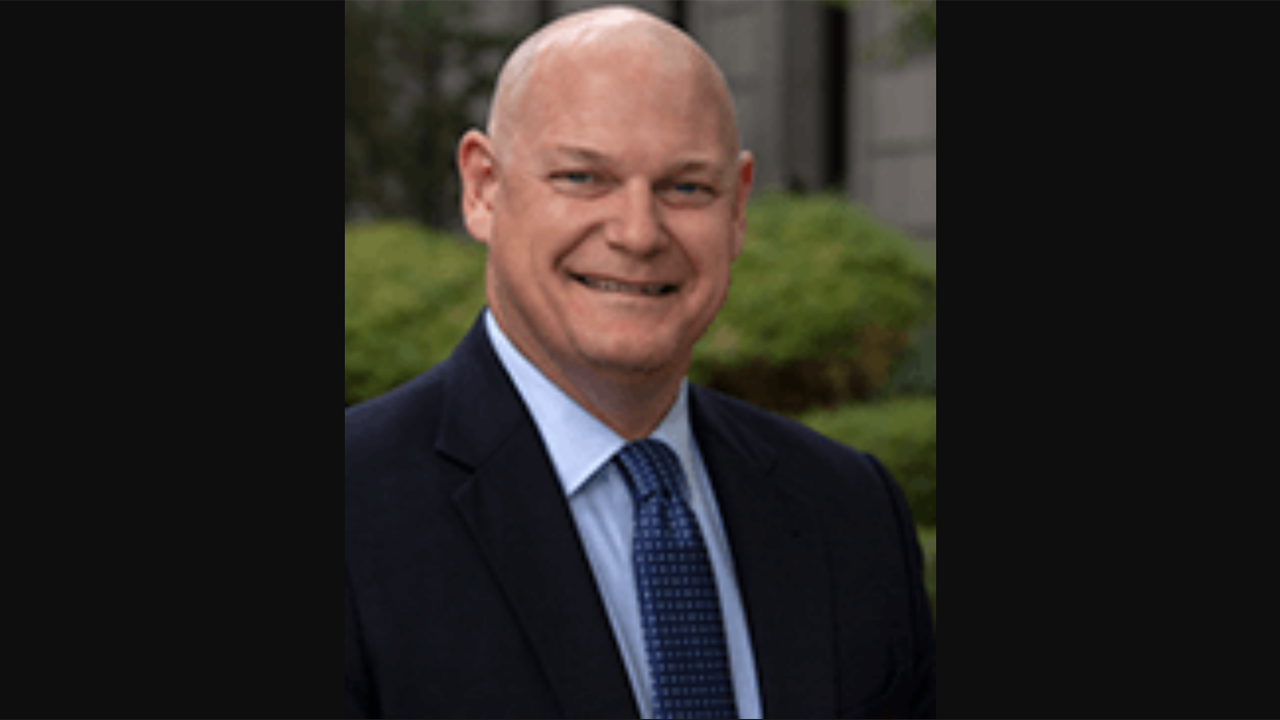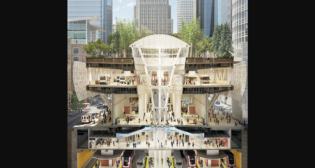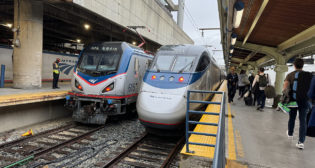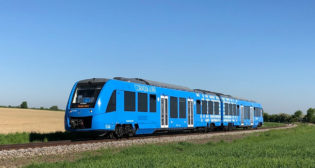
Report: CHSRA’s Kelly Stepping Down
Written by Marybeth Luczak, Executive Editor
Brian Kelly, outgoing CEO of the California High-Speed Rail Authority (CHSRA)
After six years leading the California High-Speed Rail Authority (CHSRA), Brian Kelly has submitted his letter of resignation, according to a Jan. 18 report from Nexstar Media’s KTLA 5 in Los Angeles.
In the letter addressed to CHSRA Board Chair Tom Richards, Kelly wrote that “[m]y goal when I took this position in 2018 was to help stabilize the organization and improve performance such that policymakers would once again consider investing in the [high-speed rail] project,” according to KTLA 5. “While there is more work to do, this goal has largely been achieved.”
Kelly came to the Authority as a transportation veteran, having served as the first secretary of the California State Transportation Agency, which was established in 2013. He oversaw eight departments, boards and commissions; 38,000 employees; and an $18.1 billion budget. Prior to that, he spent nearly two decades at the center of major transportation policy decisions in the state of California by serving four successive Senate President pro Tempores.
When Kelly was appointed to CHSRA in January 2018, he “indicated he only intended on holding the position for a few years,” KTLA 5 reported. “The job is tasking and Kelly described it [in his resignation letter] as the most challenging of his 30-year public service career. He also called it the most satisfying.” He did not provide a departure date, “instead saying he was committed to helping the board with a smooth transition to new leadership,” according to the media outlet.
In an interview with The Fresno Bee, Kelly said “that he plans to stay in the role, perhaps for several months or more, as the agency begins its search for a new chief executive.”
California high-speed rail is currently under construction along 119 miles in the Central Valley, where there are more than 25 active job sites (see map below). Additional advanced design is proceeding on stations and the 52 miles of extensions into downtown Merced and into downtown Bakersfield. The 494-mile, Phase I system will extend from San Francisco to Los Angeles/Anaheim; 422 miles have already been environmentally cleared. The system could eventually extend to Sacramento and San Diego, totaling 800 miles with up to 24 stations.

The 171-mile Merced-to-Bakersfield segment is anticipated to start operations around 2030, according to KTLA 5, which noted that as of October 2023, CHSRA had finished “43 structures, started work on 32 more and completed 56 miles of guideway.”
When Kelly joined CHSRA, he “inherited a mired down and politically unpopular” high-speed rail project, KTLA 5 said.
The project “had been bogged down by slow acquisition of property for the route through the central San Joaquin Valley and [was] beset by schedule delays and cost increases,” The Bee explained in its report. “One of the first efforts that Kelly directed was to emphasize learning from previous miscues and to sharpen the agency’s focus on completing the construction segments in the Valley with the money it had in hand. Kelly also advocated putting the Valley ‘backbone’ of the statewide system into service as rapidly as possible while lining up funds for expansion of the routes north and east to the San Francisco Bay Area.”
With Kelly at the throttle, there have been many project achievements:
- The Fresno Bee reported that “[o]ne key milestone came in mid-2022, as the rail authority worked with Gov. Gavin Newsom’s administration on securing approval from the state Legislature to access the last $4.2 billion from Proposition 1A, a bond measure approved by California voters in 2008 that provided almost $10 billion for planning, development and construction of high-speed rail.”
- In December 2023, the Authority was awarded a $3.073 billion grant from the Federal Railroad Administration (FRA) to advance construction in the Central Valley from the current 119 miles to 171 miles between Merced and Bakersfield.
- Earlier this month, CHSRA reported shortlisting Alstom Transportation Inc. and Siemens Mobility Inc. as qualified bidders for its electrified high-speed trainsets that will be capable of operating at speeds up to 220 mph. It also awarded Network Rail Consulting Inc. (the U.S. subsidiary of Britain’s Network Rail Consulting) a $73.2 million systems engineering services contract; with construction under way, the company “will directly support CHSRA’s Rail and Operations Delivery Branch in a partner role through May 2029.”
- On Jan. 18—the same day Kelly told the Board he was stepping down—CHSRA released a 2023 Economic Impact Analysis Report, estimating that the high-speed rail project produced $7 billion in total direct labor income and $18 billion in total economic activity between July 2006 and June 2023 (download fact sheet below). KTLA 5 noted that Central Valley construction jobs have increased from 2,500 in 2018 to 12,200 last year.
“I just believe this in my core, that the project is about to make a key transition into getting ready and getting into operations,” Kelly told The Fresno Bee. “With this new award of federal funds, and before that the awarding of the state bond money, the project is well on its way to transition into operations. … It’s the right time now to bring in somebody specifically with passenger rail operations experience at a high level, at a chief executive level.”
CHSRA Board Member Henry R. Perea told The Bee that Kelly was “‘the right guy at the right time’ to guide the listless agency. ‘What Brian did was bring a lot of focus and credibility to the project, and hired the right team to get us moving in a new direction,’ Perea said,” adding that the FRA grant “would not have happened without Brian and his credibility.”
CHSRA Board Chair Tom Richards also spoke with The Bee, saying of Kelly: “There’s no question he’s taken it [the project] to the next level from where we were before. But he didn’t think it would take this long, and probably we (as a board) didn’t, either.” Richards added that “the bottom line is that the skill sets in running an organization that’s moving rapidly toard [sic] operations is not something he necessarily felt was in his toolbox at the outset.”
Kelly told The Bee: “I took this job with the intent to stabilize the organization, to have it perform better, and to try to get reinvestment of public funds in the project, and I feel good about it. I feel like I’ve achieved much of that.”
According to KTLA 5, a UC Berkeley poll recently showed that “the majority of Californians still support funding the high-speed rail project, even on its current timeline. The project also has the support of California Gov. Gavin Newsom, who was less enthused about the ballooning cost of the project when he assumed office in 2019. He has since come around and is one of the project’s most ardent and vocal boosters.”
Further Reading
- Watch: CHSRA Releases 2023 Retrospective
- Arup Awarded CHSRA Contract
- CHSRA Selects Foster + Partners, Arup to Design First Four Central Valley Stations
- CHSRA Releases 2022 Project Update Report
- Moving Forward—At Restricted Speed
- California HSR: Limited Clear



